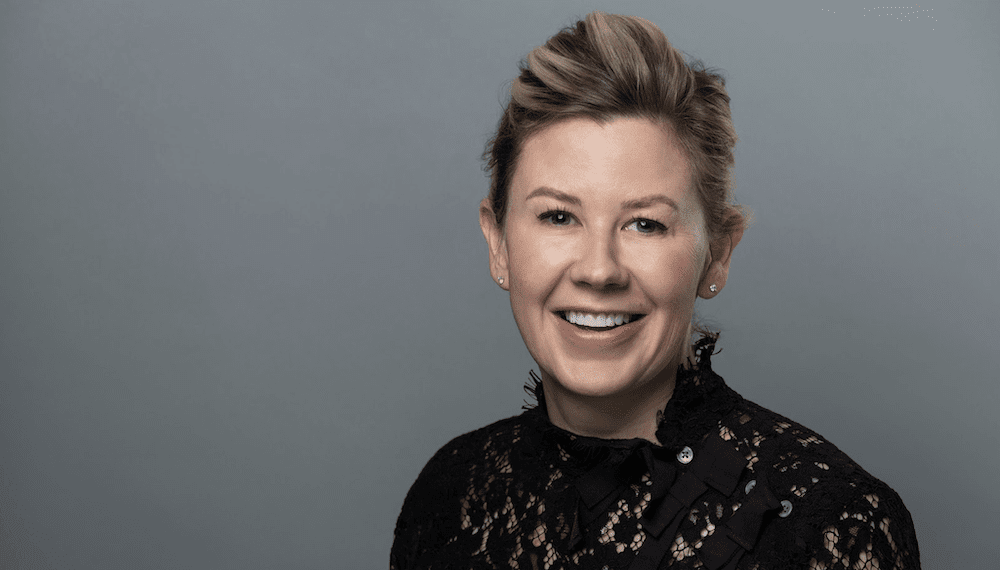CASH MANAGEMENT
Tips and Information on managing your startup’s VC cash safely and efficiently.

KRUZE CONSULTING, CPA
Cash management overview for startups
Cash management is a startup’s daily administration of cash inflows and outflows - and given the current financial situation of banks in the US - keeping your startup’s cash safe while getting yield.
In their initial stages, startups don’t tend to generate meaningful revenue or profits. However, companies that raise venture funding tend to have outsized balance sheets, so cash management focuses on preserving the company’s capital and maximizing liquidity. Of course, earning some yield (safely) is also nice!
Safely managing startup cash
Following SVB’s meltdown, startup founders are looking for the safest cash management options. FDIC insurance offers protection up to $250,000, which is clearly not enough protection for a startup that has raised outside funding from VCs or professional investors.
Thankfully, many banks and fintech companies offer products that attempt to provider more than the $250,000 in FDIC coverage. These safer treasury management solutions tend to fall into three different buckets:
- Insured Cash Sweep accounts take your deposits and spread them out over multiple FDIC insured banks, keeping your account balance at any particular bank under the $250,000 insurance limit. Cash is quickly available and, in theory, quite safe.
- Government Bonds are considered the safest investments on the planet, and the best startup treasury / cash management providers offer safe ways to put your cash into government debt. There are lots of nuances around choosing the right maturity date when working with bonds that a good banking partner can help you manage.
- Money Market Funds are mutual funds that invest in safe, short-term securities. These are investment vehicles, and are not FDIC insured. But they are considered quite safe. Work with a solid treasury management partner to figure out if this makes sense for your startup’s cash.
Read our article on FDIC insurance for startups to see a list of various providers and their products.
Best yield for a startup’s cash
In mid Q1, 2023, the best yield we are seeing that meets our key tenets for startup cash management (see below) is between 3% to ~5%.
What is treasury?
Treasury is the management of a company’s cash and financial resources to meet the business’ financial needs - while also operating within the business’ risk levels. Unlike large corporations like Goldman Sachs, which have teams to actively manage the business’ financial resources, startups do not have the time or personnel to conduct sophisticated treasury operations.
However, unlike many traditional businesses, VC-backed startups DO often have large amounts of capital that can be put to work generating yield. Startup treasury management services are offered by banks and other financial institutions, and the types of products offered vary from high-yield savings accounts to money market accounts, government bonds, corporate bonds and crypto yield products.
Key tenets for startup cash management
Capital preservation
Capital preservation focuses on protecting the funds you have, not investing for high growth. Venture capital investors invest in startups to build the business, and don’t expect founders to take on risky financial investments with their venture capital funds. That means that venture capital should be kept in secure investments for a couple of reasons:
- Investments with potentially high yields often fluctuate significantly in value, and investing in them requires a long-term focus of years or decades. Startups typically have runways of six to 18 months, during which they depend on those funds to pay expenses. If your investments drop in value, losses will shorten your runway and cost you credibility with your investors.
- Founders have a fiduciary responsibility to their companies and investors to act in the best interest of the company. High-risk investments that decline in value could expose founders to litigation.
Liquidity
When startup expenses need to be paid, you need liquidity – your funds can’t be tied up and need to be available to you. Certificates of deposit, for example, may provide a higher yield than money market funds, but they lock up cash for a set term. Cashing them early involves paying a penalty. CDs can have a place in a well-thought-out cash management strategy, but you’ll need to plan for different maturity dates as part of a CD “laddering” plan (see below), in which you stagger CD maturities so that funds are available each month.
Risk management
Founders need to be very careful when choosing appropriate savings or investment vehicles for venture capital funds. It’s much better to accept a very low rate of return, or no return, rather than putting money you can’t afford to lose at risk by chasing higher yields. Established options like savings accounts, short-term Treasury bills, money market accounts, and carefully selected CDs are much better choices than more exotic investments.
Managing risk is an important part of effective corporate cash management. Companies need to carefully evaluate the potential risks of their various cash management activities and take steps to minimize or mitigate those risks in order to ensure the availability of funds to meet payroll and other operating expenses.
Additionally, losing money through poor treasury management can be seen as a failure on the part of the startup founder. As the leader of the company, the founder is responsible for making strategic decisions, including managing the company’s finances. Losing some of your VC funding in an esoteric investment can be seen as a sign that the founder was unable to effectively manage the company’s resources, which can be embarrassing.
Finally, losing your startup’s financing through a risky investment can also be embarrassing because it can impact the relationship between the startup and the VC firm. Venture capital firms typically take an active role in the companies they invest in, and losing the firm’s cash can be seen as a breach of trust. This could damage the relationship between the founder and the VC firm, and potentially impact the startup’s ability to raise additional funding in the future.
In short, losing VC cash can be embarrassing for a startup founder because it can be seen as a failure on their part, reflect poorly on the startup itself, and damage the relationship between the startup and the VC firm. Startup founders take plenty of risk - risk in developing a new product, a new go-to-market strategy, etc. Don’t take needless risk with your treasury management.
Yield
In financial markets, reward is tied to risk. To get a greater yield, you have to accept more risk. That’s why this criteria falls below liquidity and safety. You can look at investment options to optimize your yield, but under no circumstances should you look at high-risk investment options.
No exotic investments
This criteria is cautionary. Exotic investments fall outside the traditional investment categories of cash equivalents, bonds, or stocks, which are investment vehicles with increasing degrees of risk. Innovative financial investments will carry much higher risk than traditional investments. Cryptocurrencies, for example, can fluctuate significantly in value, and a large drop could seriously impact your startup’s cash position. As a fiduciary, you could be held legally responsible, and a large investment loss means you will certainly need to have an uncomfortable conversation with your board; investors; any lenders; and possibly vendors, contractors, and your employees.
Sound cash management for startups
Low-risk investments include things like Treasury bills and bonds, certificates of deposit (CDs), and high-quality corporate bonds. These options offer more yield than a standard savings account, and you can use them to create a bond ladder, with a variety of low-risk securities with staggered maturity dates. While each of these options typically require you to invest for a specific term, if you need cash earlier you can normally access your funds by paying a small penalty.
Poor cash management decisions can affect both your current startup, and potentially any future ventures. Bad investments could lead to a negative perception that could make other investors wary of working with you. For startup cash management, safety and liquidity should be your warchwords. For more information about cash management for your startup, please contact us.
How can startups safely manage their cash?
This question is important for startups to consider, since a successful fundraising means you will probably have a significant amount of cash on hand. Your startup’s venture capital will be spent over time to develop your business, but in the meantime, you need to safeguard your funding. Many banks that work with startups offer cash management solutions, which are suites of financial products that combine features that are similar to checking, savings, and money market accounts, and will help you balance returns and risk, while providing access to the funds.
Three criteria for cash management: Yield, risk, and access
Your main considerations for a startup cash management plan should be these three criteria, yield, risk, and access. Each of these factors needs to be balanced against the others.
- Yield. You will want to get the best return you can without ignoring the other two criteria. As return increases, however, so does risk. Founders need to primarily focus on capital preservation, making sure your funds are safe until you’re ready to use them for business expenses. Your responsibility as a founder is not generating investment returns, but you should look for some yield while minimizing risk. A startup with $40 million that can earn 50 basis points annually generate $200,000, which could fund a hire.
- Risk. Risk increases among investment options with potentially higher risk, so founders should avoid investment vehicles like the stock market or high-yield bonds. Taking investment risk is not acceptable to your investors. Also, as a founder, you have a fiduciary responsibility to manage company assets prudently. A major investment loss could expose you to litigation, and it will almost certainly affect your relationships with current and potential investors.
- Access. The third criteria is liquidity. For business expenses, you need to access your funds easily. That typically means putting your funds in savings accounts or cash-equivalent options. You might set up a checking account for immediate expenses, a savings account to hold funds that can be transferred easily when necessary, and potentially a money market account that might generate a higher interest rate.
Cash management products for startups
Banks that work with startups usually offer cash management solutions, which are suites of financial products designed to help startups handle funds efficiently while balancing yield, risk, and access. In addition to earning higher interest, many of these products will help you manage cash flows, including accounts receivable and accounts payable. If you’ve done a good job of fundraising, the next step will be managing those funds, so you can build your business.
Why VC-Backed Startups Should Not Buy Stocks
This is a short and sweet topic but it’s something that is incredibly important to remember when you’re managing a startup: Don’t buy stocks with your VC cash! Venture capital-backed startups should not be buying stocks ** ** as a method of cash management.
Stocks are too risky
The bottom line is, buying stocks with the cash your startup’s raised from your VCs is far too risky. The stock market can easily go down by 20-30% in a few months, and if you’ve bought into those stocks then you’re immediately in trouble with your VCs.
You should absolutely not, under any circumstances, ever buy stocks in anything like Google, Apple, or Starbucks with the cash you have raised from your VCs. It is simply not in the risk profile. Even mature companies can face setbacks, and you can’t afford to lose any of your cash reserves.
This money is there to help build your startup and any method of cash management that risks you losing that cash is not a good form of cash management!
What SHOULD you buy with your cash reserves?
Instead of risking the loss of your venture capital, you need to invest your cash in conservative, liquid, and short-term securities such as:
- US Treasury Bills, which have maturities from four to 52 weeks
- Money market funds that hold short-term government bonds
Essentially, you need to invest your cash into securities that are very low risk and easy to cash out if you find you need the funds. If these securities provide some yield, that’s great too. And right now T-Bills are providing about 5% return.
We recommend creating an investment policy statement, and having your board review it. This is a document that outlines where you can and can not put your company’s money. Create one – and follow it.
How can you invest in securities?
At Kruze Consulting, we recommend buying treasuries directly. You can do so though Treasure FI, Meow, Arc or one of the other cash management services available (note that we have financial relationships with those companies). Furthermore, all the big banks provide really sophisticated cash management services that will get you into the right securities. But never buy stocks with your VC’s cash!
Managing startup cash during rising interest rates
The Federal Reserve is hiking interest rates to combat inflation, and is telegraphing future hikes. So what does that mean for a startup that’s raised a significant amount of money, and has a large pool of cash?
Many banks and financial institutions offer cash management or treasury management solutions. Your startup can take advantage of suites of financial products that can help you balance your yields against potential risks, while making sure your funds are liquid and accessible.
Remember your cash management priorities as a startup founder:
- Preserve your capital. This is your highest priority – your investors entrusted you with these funds to build your business, and they don’t expect you to generate huge returns on that capita through high-risk investments.
- Maintain liquidity. Startups should be able to access your funds when you need them. Certificates of deposit, for example, require you pay a penalty if you cash them out early, so you need to balance the potential return against the possibility you’ll need the funds.
-
Cost management. Accounts with high fees or high commissions can eat into the returns you’re receiving.
- Counterparty risk. This is the risk that your financial institution might default on its obligations to you. Banks, for example, insure your accounts through the Federal Deposit Insurance Corporation (FDIC) but only up to $250,000 per account.
What cash management options are available to startups?
However, with rising interest rates, there’s opportunity to earn more with your capital than you may be earning in your checking or savings accounts.
Let’s look at some cash/treasury management options:
Savings accounts. Currently you can get FDIC-insured savings with interest rates above 1%, so you should check to see if you can move your funds into higher-yielding savings accounts. Definitely shop around for the highest rates! Remember that FDIC insurance only covers $250,000 per account, so if your startup has a significant amount of capital, a single account may not be your best choice.
Network deposit services. For startups with large-dollar deposits that want greater FDIC protection, some financial institutions offer network deposits, where the startup’s deposit is distributed among a large number of banks to maximize FDIC protection. For the startup, there is only a single financial relationship with a consolidated statement. As interest rates rise, these deposit accounts will reflect the increases, so you’ll be able to maintain competitive rates of return on your funds.
Money market funds. Money market funds are mutual funds offered by investment fund companies that invest in highly liquid instruments like US Treasuries, government bonds, commercial paper, and certificates of deposit (CDs). These are high-quality investments with a short average maturity – 60 days or less – so investment risk is very small. The overall returns of money market funds are dependent on interest rates, which makes them a popular choice to park funds when interest rates are trending upward.
NOTE: Money market funds are NOT the same as money market accounts (MMA), which are interest-earning savings accounts offered by financial institutions and carry FDIC insurance. MMA yields are typically lower than money market mutual funds.
Bond/CD ladders. A bond or CD ladder is a portfolio of individual bonds or CDs that have staggered maturity dates. The bonds or CDs are timed to mature when the startup needs the cash. The ladder locks in the interest rate for the individual securities that make up the “rungs” of the ladder. That can be an issue, however, in a rising interest rate environment. If a startup purchases a bond with a 12-month maturity that pays 3 percent interest, and interest rates rise, those funds could be earning more return. So locking up funds may not be the best choice when rates are going up.
Talk to experts in treasury management
To take advantage of the different cash management options, startups should consult an experienced treasury manager at a financial institution. While it’s possible to invest in bonds or purchase CDs directly, cash management activities can be complex and would take significant amountsof time to manage. Kruze Consulting works with several banks that specialize in startup banking, and you can check out our reviews here.
Manage your capital with bond ladders
One way that startups can use their available cash more productively is through a bond ladder. A properly structured bond ladder can help you achieve some return, while protecting your capital and maintaining liquidity. A bond ladder is a portfolio of bonds and securities with maturity dates that are staggered to mature at key dates so the cash is available when you need it. Generally you’ll want a mixture of Treasury bills (which have short maturities from 13 weeks to a year), certificates of deposit (CDs), or even zero-coupon bonds. CDs are insured by the Federal Deposit Insurance Corporation (FDIC), and Treasuries are backed by the US government, so your funds are very safe. And, if you run into unforeseen expenses, you can usually cash out any of these by paying a small penalty.
Can FDIC insurance protect your startup’s funds?
Often startups that have raised significant sums of cash may simply choose to put the money in a bank account. After all, company officers have a fiduciary duty to manage company funds prudently, and bank accounts are insured by the Federal Deposit Insurance Corporation (FDIC). However, FDIC insurance is restricted to $250,000 per deposit, and if your startup has millions in venture capital, that’s not enough to fully protect your funds. Alternatives include money market funds, bond ladders, and network deposit services, which spread large deposits among a network of banks to maximize your FDIC insurance.
Why Is Cash Management Important?
Cash management is important because startups often have a lot of cash. Kruze’s research shows that our average startup client had $5.5 million in cash at the start of 2023 and ended the year with $5.2 million. That’s less than they had in 2022 (the average cash total for our startups peaked at $6.5 million in 2022), but that’s still a significant amount of money. And the median startup has over 11 months of runway, so they don’t need that cash immediately.
So startups need to find safe places to keep that money, and ideally earn some return on it before they need to use it.
How much cash startups have
How much cash should a startup keep in its operating account?
This is a question that’s frequently asked by startup founders and management. Most startups typically have two bank accounts. One is an operating account, that functions like a normal checking account, and that’s used to pay the normal operating expenses, like payroll, vendors, and credit cards.
The other type of account is usually a savings or money market account that provides some type of yield for the startup’s capital. A startup that’s just been through a fundraising event may have millions of dollars on hand. While you absolutely don’t want to put that money in high-yield, high-risk investment, you probably do want to earn some interest.
So how much should be in your operating account? The best way to think about this is in terms of your burn rate. That’s the amount of money your startup spends each month. You can use our startup burn rate calculator to estimate your burn. We recommend keeping two to three months of cash in the operating account. As an example, if your startup is spending $500,000 each month, you probably need $1-1.5 million in your operating account.
Your mileage may vary
This is based on your personal preference – a lot of companies want to keep as much as possible in the interest-bearing account to maximize earnings. Those companies might only keep one month’s expenses in their operating account. And they have to remember to transfer funds every month so they don’t miss payroll or can’t pay a bill.
Other companies prefer to be more conservative, and they’ll keep two or three months of expenses in the operating account, to make sure they don’t forget to make a transfer. They choose to sacrifice a bit of interest to avoid any cash flow problems.
Your startup’s cash management policy
This is something that you may want to tweak over time. Money market yields have been pretty low in the last few years, so companies that kept more money in their operating accounts weren’t losing much. But interest rates are rising, and that may affect your decision.
It’s a good idea to have a cash management policy that outlines these guidelines, and is approved by your board of directors - check our our templated startup investment management policy statement. But the most important thing is don’t forget to put money in your operating account. If you have questions about cash management, operating accounts, or startup banking, please let us know.
How can your startup afford another engineer?
Cash management can help startups generate more yield by ensuring that cash is being used efficiently and effectively to support the growth and development of the business. Startups can invest excess cash in short-term, low-risk investments to generate additional yield, and that could be enough to fund another engineering position. Other cash management strategies include negotiating with your bank for better interest rates, creating bond ladders with Treasury bills, or even shifting your funds to a money market fund account. Start by talking to your bank’s cash management or treasury management department to see what options they can recommend.
What happens if you need to sell Treasuries early?
US Treasury securities (Treasury Bills, Notes, and Bonds) are debt obligations of the US government and are basically free of default risk. The government promises to pay a stated interest rate and return your principal at maturity. As long as you hold your Treasuries to maturity, you don’t have any risk of losing money. However, if you need your money earlier, and you have to sell before maturity, you could lose money. You’ll have to sell your security on the open market, and you’ll get market value. Changes in interest rates affect the security’s value. If rates go up after you bought it, buyers won’t be willing to pay full price for your security, since they can buy one with a higher rate from the government. So you’ll need to sell your security at a discounted price.
What is a cash investment policy statement?
A cash investment policy statement (IPS) is a document that spells out a startup’s short-term investment objectives and strategies. The IPS is used to help startups invest cash that’s not currently needed to fund operations, and helps to promote consistent investment discipline and prudent decisions. Startups always need to emphasize capital preservation and liquidity over earning returns, and the IPS outlines policies that protect the company’s capital while potentially allowing it to earn a yield.
Founder cash management tips
Founders with venture capital dollars in their bank account need to take into consideration several key points - capital preservation, liquidity and risk management. Yield is not a primary concern, although with the best founder cash management products, like short maturity treasuries, all it can be had alongside the other, more primary needs.
Founders handing their startup’s cash need to be considerate of several key risks, beyond the risks of the actual investments. First of all, as the SVB crisis makes very clear, the strength of the financial institution matters. Custodial accounts, FDIC insurance, etc. can help over come this risk. Additionally, rate risk matters for longer maturity investments. Liquidity is another risk, as emercency funds need to be accessible in an emergency.
Treasury Clauses Are Being Included in Term Sheets
Because of the bank failures in 2023, venture capital funds are more likely to include treasury clauses in the term sheets they issue to startups. VC term sheets spell out the guidelines a startup must follow to receive VC funding. In the past, a startup might just put all its VC investment into a single bank, but that doesn’t provide sufficient protection for the very large amounts of capital that startups can receive from VCs. So many VC term sheets now include requirements to use more than one bank, or they may insist that startups have a board-approved investment policy.
Startup Treasury and Cash Management Expert Authors
Our team has deep expertise in helping early-stage companies manage their balance sheet. From picking the right bank to work with to venture debt to how to get yield on the millions in VC that you’ve raised, we’ve got you covered.
Key authors on this treasury management piece are:
Kruze Cares More!
Ready to Work With The Best Accountant?

How are We Different?
We know you are busy. So, we have developed highly automated systems that we use to quickly get the job done for you. However, we don’t just stop there. We go above and beyond automation and always have a team of certified public accountants (CPA) experts ready to provide you with white-glove service. This is the Kruze way!
Don’t take our word for it. Check out our client reviews and testimonials.












